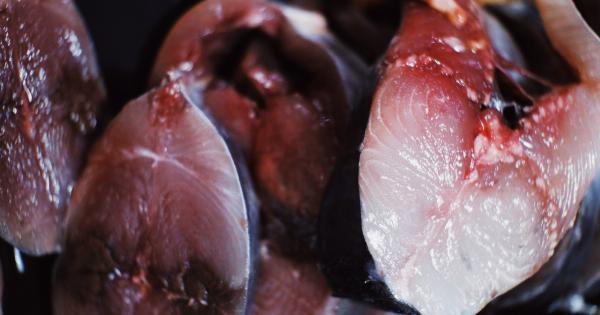In today’s fast-paced world, dining out has become a common occurrence for many people.
Whether it’s grabbing a quick bite during lunch breaks or indulging in a fancy dinner with friends, eating out has become a convenient and popular choice.
However, have you ever considered how frequently dining out may be influencing your blood pressure numbers? In this article, we will explore the impact of dining out on blood pressure levels, the potential health risks associated with eating out often, and provide helpful tips for maintaining a healthier diet.
Dining out and blood pressure: Understanding the connection
High blood pressure, also known as hypertension, is a condition that affects millions of people worldwide.
It is often referred to as the “silent killer” as it typically has no symptoms but can lead to serious health complications when left uncontrolled. Numerous factors contribute to the development of high blood pressure, including diet, lifestyle choices, and genetics.
When it comes to dining out, several aspects can affect your blood pressure numbers:.
1. Increased sodium intake
The most common culprit behind rising blood pressure levels from dining out is the excessive intake of sodium. Processed and restaurant-prepared foods are often high in sodium, which can quickly elevate blood pressure.
Sodium retains water in the body, increasing the volume of blood and putting additional strain on the heart and blood vessels.
2. Hidden fats and calories
Restaurant meals tend to be larger in portion size and may contain hidden fats and calories. Overconsumption of fats and calories can lead to weight gain and obesity, which are risk factors for high blood pressure.
Additionally, high-fat diets can contribute to the accumulation of plaque in the arteries, further raising the risk of hypertension.
3. Limited control over ingredients
When dining out, we often have limited control over what goes into our meals. Restaurants may use cooking oils, sauces, and dressings that are high in unhealthy fats and sodium.
This lack of control makes it challenging to maintain a healthy diet that promotes optimal blood pressure levels.
4. Lack of variety in healthier options
While many restaurants offer healthier choices on their menus, the overall selection of nutritious options might be limited.
This can make it challenging for individuals with high blood pressure to find suitable meals that align with their dietary needs. Limited access to healthier alternatives can contribute to the consumption of less favorable options, negatively impacting blood pressure numbers.
The potential health risks of dining out often
Eating out frequently can lead to several health risks, including:.
1. High blood pressure
The excessive intake of sodium, hidden fats, and calories from dining out can significantly contribute to high blood pressure.
Consistently elevated blood pressure levels put individuals at risk for heart disease, stroke, and other serious health conditions.
2. Weight gain and obesity
Overconsumption of unhealthy foods, particularly those high in fat and calories, can lead to weight gain and obesity. Being overweight or obese increases the likelihood of developing high blood pressure.
3. Increased risk of chronic diseases
A poor diet and the consumption of unhealthy foods are associated with an increased risk of developing chronic diseases such as diabetes, certain cancers, and cardiovascular disease.
Dining out frequently without considering the nutritional content of meals can contribute to these risks.
4. Elevated cholesterol levels
Many restaurant-prepared meals contain high levels of saturated and trans fats, which can lead to increased cholesterol levels. Elevated cholesterol levels are a risk factor for high blood pressure and cardiovascular disease.
Tips for maintaining a healthier diet while dining out
While dining out can present challenges, there are several strategies you can adopt to maintain a healthier diet and lower your blood pressure:.
1. Choose restaurants with healthier options
When deciding where to dine, opt for restaurants that offer a variety of healthy choices. Look for menus that emphasize fresh ingredients, lean proteins, and plenty of vegetables.
This will provide you with more options to make nutritious choices that benefit your blood pressure.
2. Be mindful of portion sizes
Restaurant portions are often larger than necessary, leading to overeating. To avoid consuming excessive amounts of food, consider sharing a meal or asking for a takeout box at the beginning of the meal and packing up half for later.
3. Request modifications
Don’t hesitate to ask for modifications when placing your order.
Requesting steamed or grilled options instead of fried, asking for dressings or sauces on the side, or substituting high-sodium sides with steamed vegetables are simple changes that can make a significant difference in reducing sodium and unhealthy fat intake.
4. Limit processed and fried foods
Avoid dishes that are heavily processed or fried, as they are often loaded with unhealthy fats, sodium, and excessive calories. Choose options that are grilled, baked, or steamed instead.
5. Control your sodium intake
Be mindful of your sodium intake when dining out by looking for low-sodium options on the menu or asking the server for assistance. Avoid adding extra salt to your food and opt for spices, herbs, and lemon juice to enhance flavor instead.
6. Practice moderation
While it’s essential to make healthier choices, it’s also essential to enjoy your dining experiences without feeling deprived.
Practice moderation by occasionally indulging in your favorite dishes, but balance them with healthier choices throughout the week.
Conclusion
Dining out often can have a significant impact on your blood pressure numbers.
The excessive intake of sodium, hidden fats, and calories commonly found in restaurant-prepared meals can contribute to high blood pressure and increase the risk of developing serious health conditions. By being mindful of your choices, selecting healthier options, and practicing moderation, you can enjoy dining out while maintaining optimal blood pressure levels and supporting overall health and well-being.






























